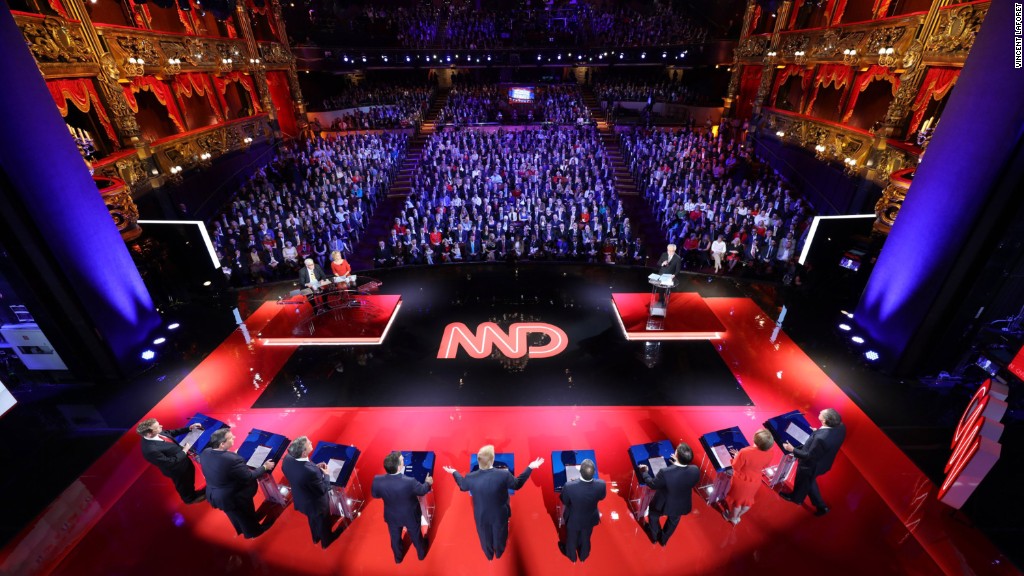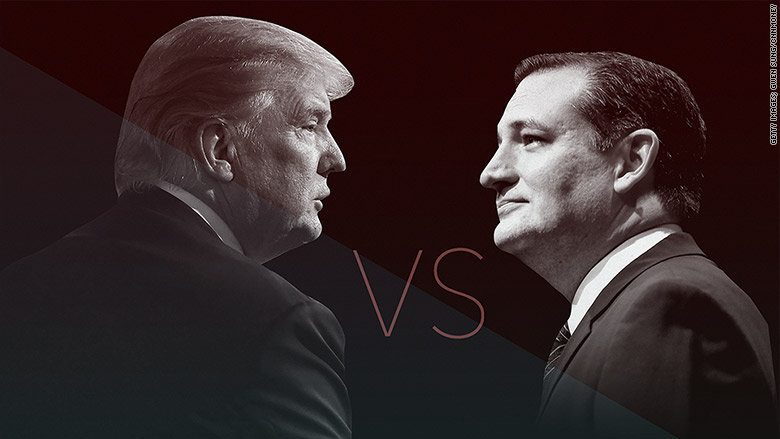
Tuesday's CNN debate is set to be a slugfest between frontrunner Donald Trump and the surging Ted Cruz. Personality matters, but it's not enough. Voters want someone who can handle the economy.
Republicans are "anxious" about the economy -- more so than Democrats, according to polls.
It helps explain Trump's endearing appeal. When voters are asked which candidate they think could best manage the economy, Trump consistently scores well above the rest of the field.
Here's a side-by-side rundown on how the two most buzzed about Republicans heading into the debate stack up on money issues.
Jobs
Trump likes to boast that he will be the best jobs president that God ever created. But his plans are very similar to most of the GOP field: cut taxes and scale back government.
Cruz has gone even further than Trump by detailing exactly how he would slash government to boost the economy. He would say goodbye to the Internal Revenue Service, the Department of Education, the Department of Energy, the Department of Commerce and the Department of Housing and Urban Development.
Taxes
Trump would take seven income tax brackets down to essentially four: 0%, 10%, 20% and 25%. People earnings less than $25,000 would pay no tax (or less than $50,000 for married couples). He would also reduce the corporate tax rate from its high of 39% to just 15%.
Cruz would go further. He would get rid of the seven income tax brackets and go to one -- 10% on everyone. He would also eliminate many tax credits and payroll taxes. On the business side, Cruz would abolish the corporate income tax and go to a 16% value added tax, which is a fee on sales and wages.
Cruz also says he would get rid of the IRS. Problem is that even a simple system like what he proposes needs someone to administer it and collect taxes.

Trade
Republicans have typically supported free trade. Business groups like the U.S. Chamber of Commerce have actively pushed for open trade, arguing that it helps business.
Trump has been extremely protectionist on trade. He wants to put up a physical wall between the U.S. and Mexico, and he wants to put up financial walls on trade between the U.S. and other countries.
Economists warn that Trump's policies could spark a trade war, which would be a drag on growth.
Cruz has been supportive of free trade, but he surprised many in June by suddenly fighting against the U.S. trade agreements with Asia and Europe that the Obama administration has been working to enact.
Federal Reserve
Trump isn't a cheerleader of America's central bank. In October, he told The Hill that Fed chair Janet Yellen is "keeping the economy going, barely." But he has not gone any further in proposing changes to the Fed.
Cruz is definitely no fan. He has repeatedly proposed legislation to "audit the Fed." The problem is the Fed is already audited by independent groups. There are concerns that additional audits and checks that Cruz proposes would hamstring the Fed and inject politics into its decisions.


